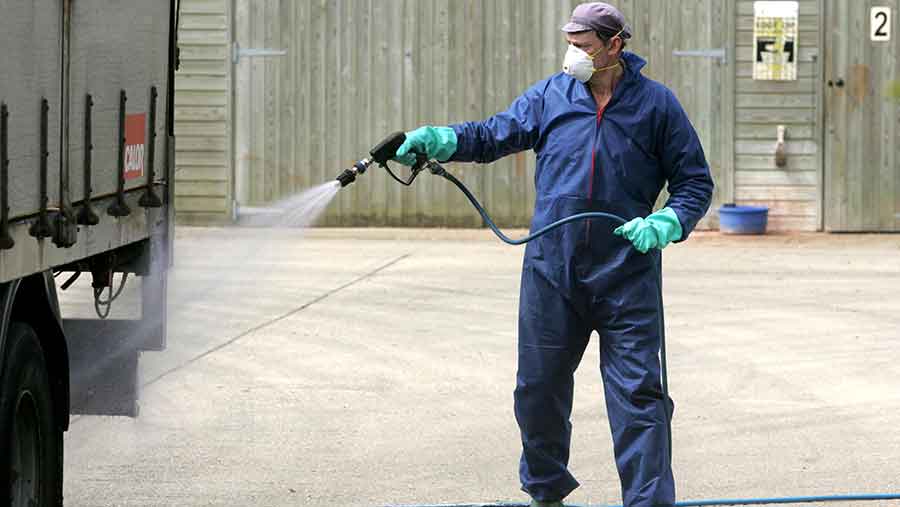Poultry companies pledge to support bird flu clean-up fund
 © Geoff Robinson/REX Shutterstock
© Geoff Robinson/REX Shutterstock Poultrymeat companies have pledged to contribute to a £500,000 fighting fund to cover the costs of bird flu secondary cleansing and disinfection (C&D) on the condition that the scheme receives support from the egg sector.
Details of the proposed fund were set out at yesterday’s (Monday, 14 December) Poultry Health and Welfare Group (PHWG) meeting.
Broiler and breeder companies had already agreed on their contribution, based on the relative scale of individual businesses, but the egg sector has decided to consult further before taking a decision at a further meeting on 13 January.
See also: Bird flu insurance in place for free-range producers
Maire Burnett, British Poultry Council agricultural policy manager, said it was important that there was a collective agreement to move forward together.
“The poultrymeat sector has made a commitment to put a fighting fund in place and I hope the egg sector will do so as well.”
However, the Game Farmers’ Association (GFA) is unlikely to offer its support. A spokesman said the seasonal nature of the sector, allied to a lack of information from Defra on secondary C&D, meant that it was not beneficial for its members.
The PHWG heard that there was growing interest from insurance companies to provide cover for secondary C&D, following the establishment of a deal between the British Free Range Egg Producers’ Association (Bfrepa) and brokers Scrutton Bland.
Both the BPC and the British Egg Industry Council told Poultry World that they welcomed the increasing support from underwriters. It has emerged that the NFU Mutual is to announce new cover early in the new year.
Gold plating
The poultry sector is also concerned about the gold-plating by Defra of secondary C&D, and senior representatives have recently visited Holland to find out the costs incurred by Dutch farmers in recent outbreaks.
Ms Burnett said there was evidence of a case in Holland where the total costs amounted to just €20,000 (£14,000) – considerably less than in the UK. “We are hoping to get some more information from Germany and France too,” she added.
While the EU Directive requirements are clear, it seems as if they are being interpreted differently by member states.
Talks with Defra are likely to be at the veterinary technical group level, to see if there can be some leeway over the timescales of secondary C&D, without compromising biosecurity.
The GFA has also questioned why poultry farmers have to spend so much time cleaning buildings, while manure and litter from the houses can be simply dumped outside, covered and left for 42 days before getting the all clear.
